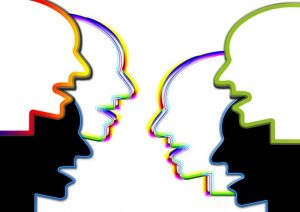By Sarah-Claire Jordan
Europe is a linguistically diverse continent with as many cultures as it has languages. With everything that is has gone through, including numerous wars, economic crises, and more, anything that brings all of the countries of Europe together to appreciate the cultures and languages of the continent is worth it.
The first European Day of Languages took place in September of 2001, when the Council of Europe and the European Union decided it was time to officially celebrate and embrace the approximately 225 different languages native to the continent. Anything and everything related to language was celebrated as a way to promote language learning, bring different cultures together, and embrace the diversity of Europe.
What happens during the Day of Languages?
Since the event was so successful that year, it was decided that the Day of Languages would happen every year in September. This year, it is on September 26th and will be celebrated throughout Europe, and even in some non-European countries, in different ways.
These days, the Council of Europe and the European Union have stepped aside and let each individual country fund and celebrate the day however they want. Generally, activities include things like events for children related to language learning and cultural diversity, radio and television programs, conferences, and, of course, language classes. Classes in a craft from a certain culture are common, as well as talks from celebrities about their native languages.
This year, as with other years, there will be some celebratory events taking place outside of Europe. These include a study group for those who are just learning Esperanto in New York City, as well as similar events in Japan, Toronto, and even Hong Kong. Basically, the Day of Languages is so successful that other countries are jumping on board too.
What can you get out of it?
If you are lucky enough to be living in or visiting a country that has Day of Languages festivities planned, then you can get a whole lot out of this day. For starters, you can take the opportunity to start learning that second (or third) language you always wanted to learn but just never got around to. Different organizations will be welcoming newcomers and beginners with open arms, ready to share cultures and languages.
Teachers, professors, and more can get a lot of mileage out of the Day of Languages by using it as an opportunity to introduce students to the idea of learning a different language, and ultimately working in fields like translation, interpretation, or just to travel and discover new cultures.




